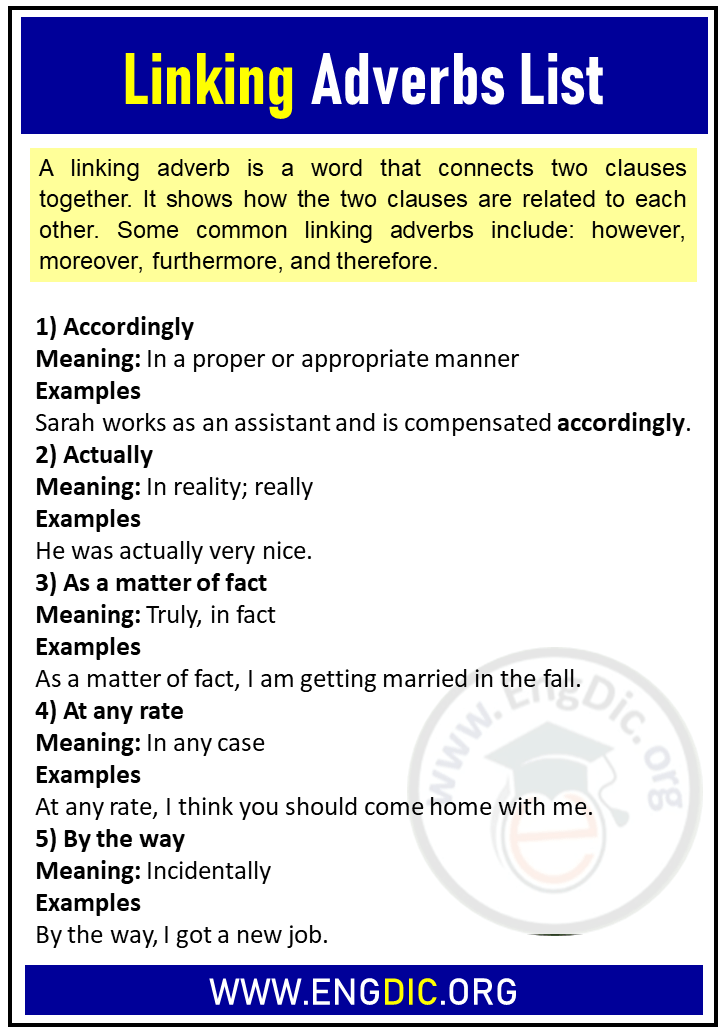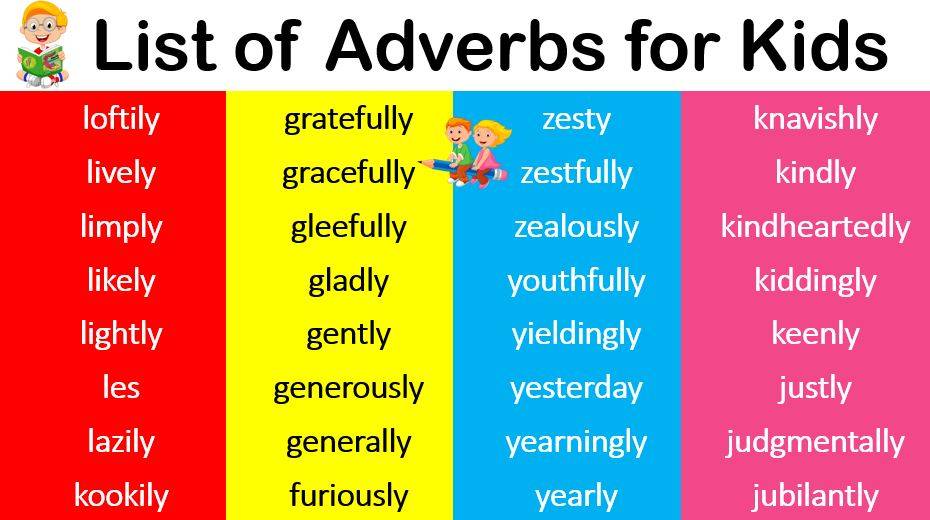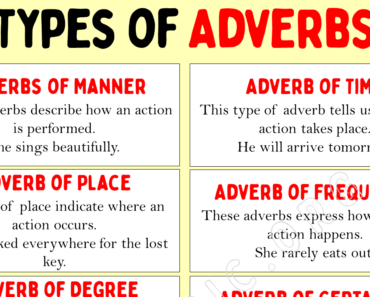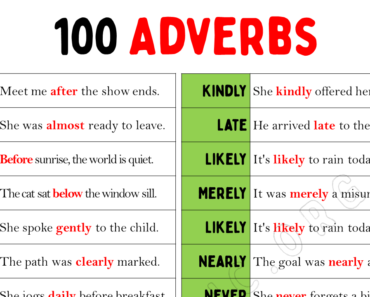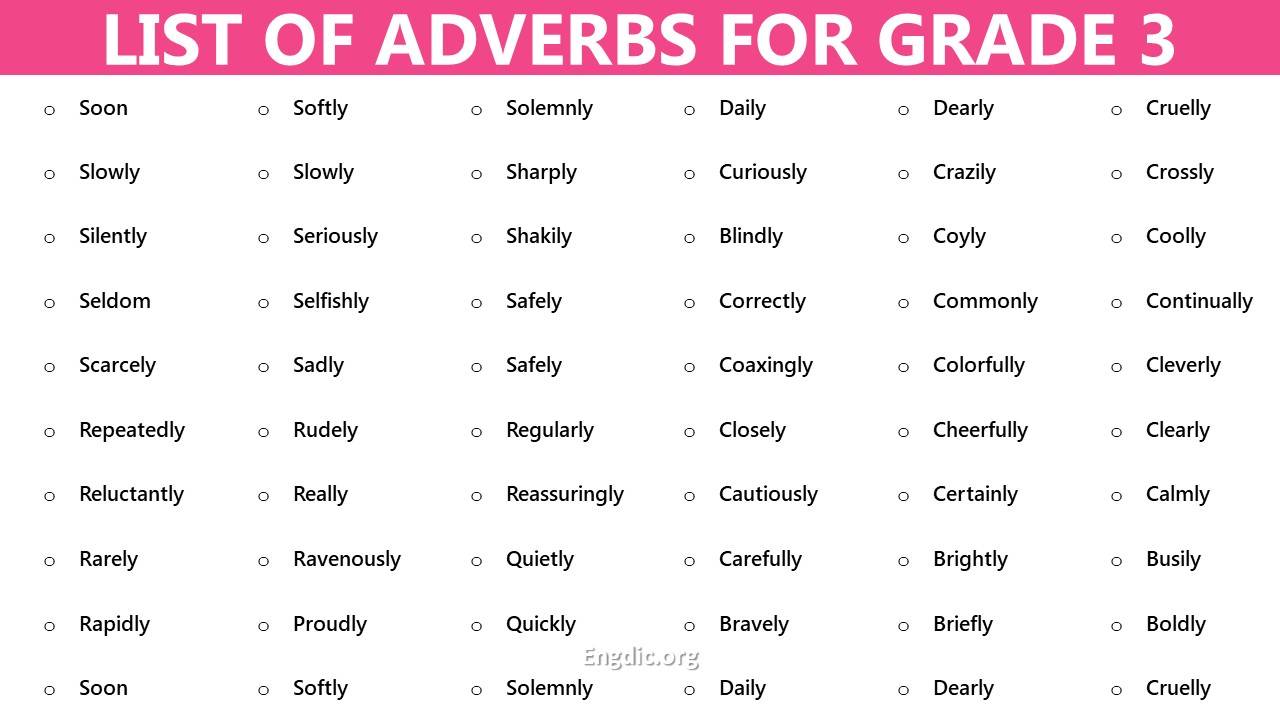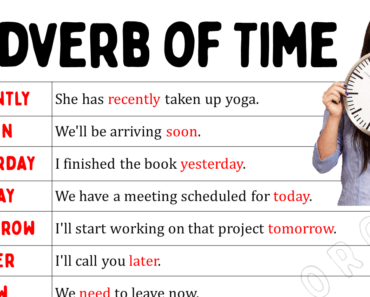Do you know how to use linking adverbs and transition words in your writing? If not, you’re in luck! In this blog post, we will go over the definitions of these two types of words and give you some examples of how to use them. By learning about these helpful tools, you can take your writing to the next level!
What is a Linking Adverb?
A linking adverb is a word that connects two clauses together. It shows how the two clauses are related to each other. Some common linking adverbs include: however, moreover, furthermore, and therefore.
Here is an example of how to use a linking adverb:
- I love going running, however, I am not a morning person.
In this sentence, the linking adverb “however” connects the two clauses “I love going running” and “I am not a morning person.” It shows that there is a relationship between these two ideas.
What is a Transition Word?
A transition word is a word that helps to connect ideas in a paragraph. It shows the relationship between the ideas. Some common transition words include: first of all, secondly, finally, and for example.
Here is an example of how to use a transition word:
- First of all, I want to say thank you. Secondly, I would like to introduce myself.
In this sentence, the transition words “first of all” and “secondly” connect the two clauses “I want to say thank you” and “I would like to introduce myself.” It shows the relationship between these two ideas.
Common Linking Adverbs List and Transition Words
1) Accordingly
Meaning: In a proper or appropriate manner
Examples
- Sarah works as an assistant and is compensated accordingly.
- She was aware of his constraints and acted in accordingly.
2) Actually
Meaning: In reality; really
Examples
- He was actually very nice.
- I thought you said it was a small party – there are actually quite a few people here!
3) As a matter of fact
Meaning: Truly, in fact
Examples
- As a matter of fact, I am getting married in the fall.
- The flowers in the garden are as a matter of fact quite lovely.
4) At any rate
Meaning: In any case
Examples
- At any rate, I think you should come home with me.
- I don’t know what you plan to do, but at any rate, good luck!
5) By the way
Meaning: Incidentally
Examples
- By the way, I got a new job.
- Do you know what time it is? By the way, your watch is broken.
6) For example
Meaning: For instance
Examples
- I love going for walks in the park – for example, this morning I saw a deer!
- She decided to become a doctor – for example, she liked the idea of helping people.
7) For instance
Meaning: For example
Examples
- I love going for walks in the park – for instance, this morning I saw a deer!
- She decided to become a doctor – for instance, she liked the idea of helping people.
8) In other words
Meaning: That is, in other words
Examples
- I didn’t understand what you said – in other words, can you please explain it again?
- She was very upset about the news – in other words, she was very sad.
9) In short
Meaning: To sum up
Examples
- In short, I think you should come with me.
- I didn’t like the movie – in short, it was pretty terrible.
10) Namely
Meaning: More specifically
Examples
- The employees, namely the ones who work on the night shift, are unhappy with the new changes.
- This new policy, namely the fact that it is mandatory, has caused a lot of controversies.
11) On the whole
Meaning: Generally speaking
Examples
- On the whole, I think the company is doing well.
- He’s a good person, on the whole.
12) To put it another way
Meaning: In other words
Examples
- I didn’t understand what you said – in other words, can you please explain it again?
- She was very upset about the news – in other words, she was very sad.
13) To sum up
Meaning: In conclusion
Examples
- To sum up, I think you should come with me.
- I didn’t like the movie – in short, it was pretty terrible.
14) Ultimately
Meaning: In the end
Examples
- Ultimately, we decided not to go to the party.
- He was very angry and, ultimately, he left the room.
15) Generally speaking
Meaning: In general
Examples
- Generally speaking, I think the company is doing well.
- He’s a good person, on the whole.
16) On the whole
Meaning: Generally speaking
Examples
- On the whole, I think the company is doing well.
- He’s a good person, on the whole.
17) Specifically
Meaning: Particularly
Examples
- The employees, namely the ones who work on the night shift, are unhappy with the new changes.
- This new policy, namely the fact that it is mandatory, has caused a lot of controversies.
18) To be honest
Meaning: Frankly
Examples
- To be honest, I don’t really know what you’re talking about.
- I didn’t like the movie – to be honest, it was pretty terrible.
19) To put it bluntly
Meaning: frankly; without any embellishment
Examples
- I didn’t like the movie – to put it bluntly, it was pretty terrible.
- She told him she didn’t want to see him again – bluntly, she broke his heart.

